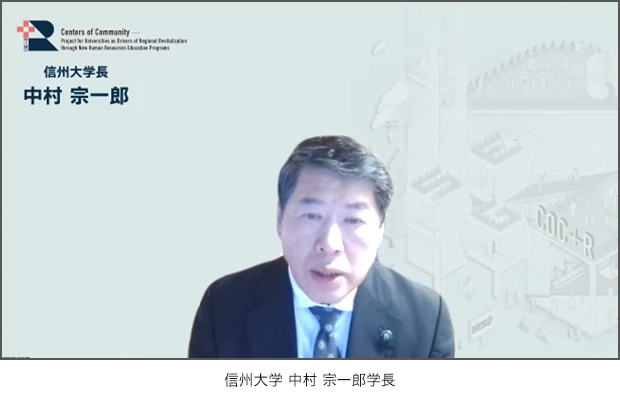The Ministry of Education, Culture, Sports, Science and Technology's "University-based Regional Creation Human Resources Education Program Construction Project (COC + R)" and the national symposium for the 3rd year of Reiwa were held from Saturday, February 2022th to Sunday, February 2th, 12. rice field.The theme is "From human resource development to human resource production".The sub-theme was "Local ESG, what role should local universities play toward regional revitalization that is unique to the region?", And it was held online following last year.Through two days of keynote speeches and symposiums, discussions and discussions were held on how universities are involved in the next dimension of human resource development, "human resources production."We will send you a summary of the first part.

"ESG" is the keyword for future regional strategies
Since this symposium was originally scheduled to be held in Toyama, President Shigeru Saito of the University of Toyama gave the opening remarks.He explained that the key to creating new value in rural areas is human resource development and human resource production based on ESG, and I hope that the university will discuss how to respond to it.We conclude that this project can contribute to the realization of the digital rural city concept set forth by the Kishida Cabinet.
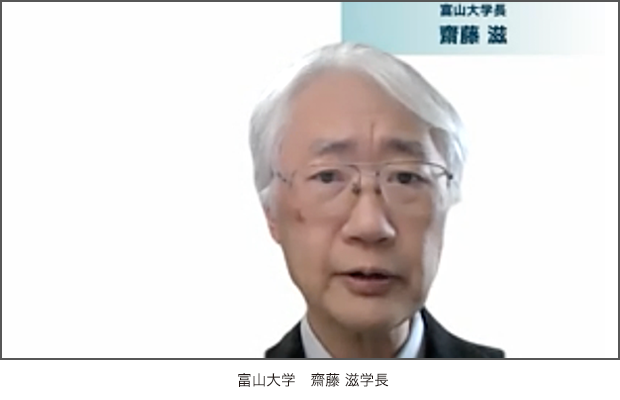
Next, Hachiro Nitta, Governor of Toyama Prefecture, appeared as a guest.In order to aim for an advanced area of well-being that is economically, mentally and socially satisfied, we hope that the university, which is the base of knowledge, will play a central role in producing human resources who will be responsible for regional revitalization through industry-academia-government collaboration. Said.It was impressive to emphasize that the university is changing into a lifelong relationship.
In addition, Mr. Yukie Nemoto, Chief of the Ministry of Education, Culture, Sports, Science and Technology's General Education Policy Bureau, also appeared in the greeting and reported on the current state of COC + R and the points for effectively advancing this project.
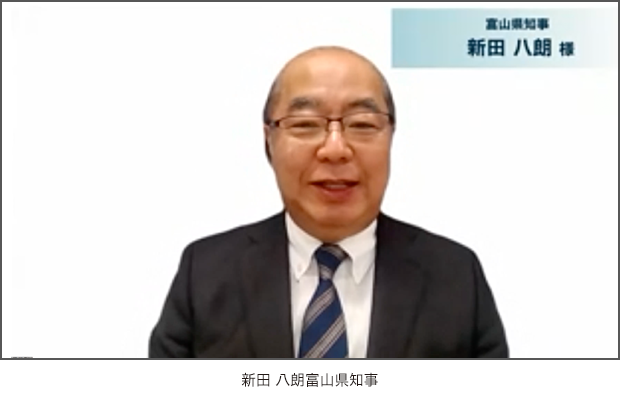
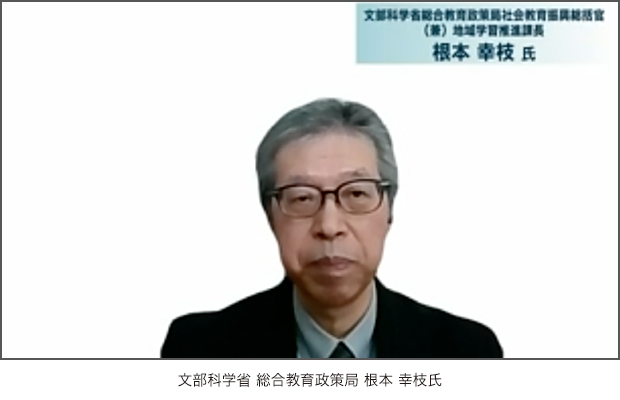
What is the potential of local ESG? ── Keynote speech
Following the greeting, Kenji Fuma, CEO of Neural Co., Ltd., said, "Local ESG, the role that local universities should play toward regional revitalization through collaboration between industry, government, and academia, which is not an extension of the past. A keynote speech was given on the theme of "What?".
"ESG" is an acronym for "Environmental Social Governance," and is a concept that is beginning to be used as a synonym for sustainability.Mr. Oma introduced that extreme weather, loss of biodiversity, and environmental risk are the worst three factors of global risk.In particular, he explained the prediction that the adverse effects of climate change on the economy would be enormous, using various data.There are also great concerns about the destructive financial crisis, and he emphasized the importance of actively committing financial institutions rather than leaving it to government agencies.We have already introduced that the shift to ESG is progressing in Western countries.
He argued that the economy is based on society and the environment, and pointed out that there is a clear change in the flow, drawing on a research paper that ESG investment increases returns.He also reported that he is now investing from a short-term perspective to a long-term perspective, and it is normal to make a decision as to whether or not it is worth investing from an ESG perspective.
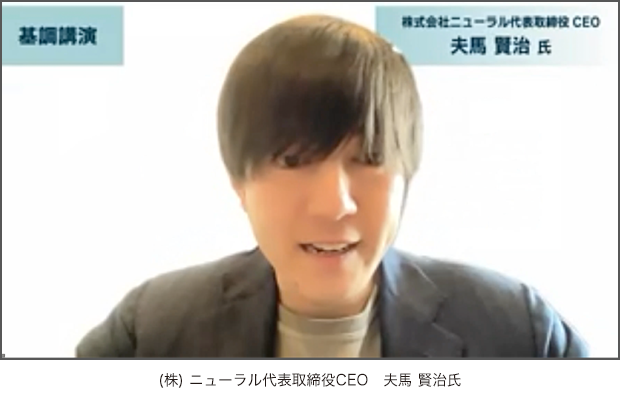
Japan lags behind ESG, what to do next
Next, Mr. Oma explained the current situation of ESG in Japan.First, he pointed out that the labor force in Japan is declining, the talent ranking and the presence of the Japanese market are significantly reduced.It has become quite low in the world, and its challenges are education spending, international experience, and low competitiveness in university education.
In other words, there are major challenges in the educational environment.He argued that education from an ESG perspective, especially universities, will play a major role in these solutions.
The Ministry of the Environment has a plan for regional financial institutions to lead a new economy by investing in ESG.This is possible through collaboration between local governments, regional companies, and regional financial institutions, but the hub is the position of the university.
The university manages difficult projects.The network of university teachers with local companies and the ease of talking are of great value. Even if you take the issue of "zero carbon", it is said that the university can lead the area to zero carbon by becoming a zero carbon campus.
And although it is behind, I gave an example of Japanese regional companies working on ESG.Introducing how Shiga Bank, Norinchukin Bank, Renofa Yamaguchi (J3 soccer club), etc. cooperate with the community.I hope that this movement will spread.
In the final Q & A corner, Professor Yasuto Hayashi of Shinshu University will answer the questions asked remotely by the participants.He concluded that he is very interested in how universities think and collaborate, given that ESG awareness is advancing and companies are changing.
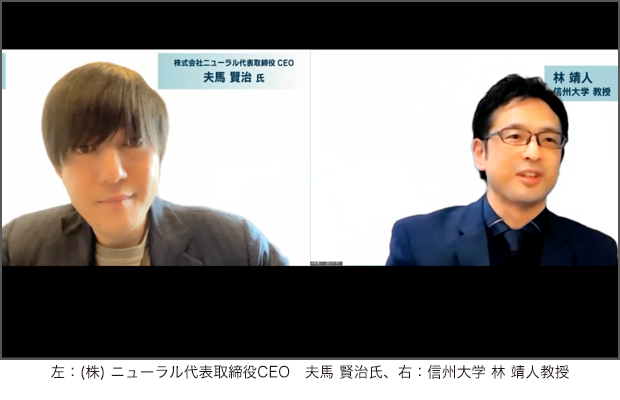
Human resources and efforts that local universities should produce ── 4 workshops held
Next, four workshops were held at the same time.The theme is "What is the future of cooperation between local universities and the region, and what kind of human resources should local universities produce?" The subtitle is "Carbon Neutral University, etc. Coalition Initiatives".Each content was put together in a graphic recording and shared.
Workshop 1 introduces the efforts of Shinshu University and Chiba University of Commerce regarding the "Zero Carbon Campus (a university pioneers in the region)".At Workshop 2, Okayama Prefectural University and Shinshu University announced that they are doing "Regional Zero Carbon (Universities are involved in the transition of the local community)".Workshop 3 concludes that "innovation (technology is created by the university)" is necessary to enhance the attractiveness of each region and to innovate with the university for the rest of your life.Then, in Workshop 4, we explained how the university responds to regional issues regarding "human resources development (cultivating human resources with unique regional characteristics)" by giving actual examples.
Finally, Director Ryozo Takeyama of the University of Toyama made a comment, expressing the importance of developing and producing high-quality human resources required by society in the future, and the desire to utilize the knowledge and research capabilities unique to the university. I told you.
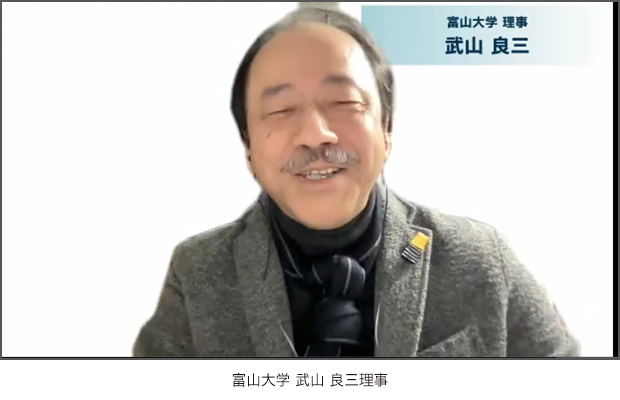
President Soichiro Nakamura of Shinshu University will stand in the closing remarks, and if the university plays a central role in gathering and gathering diverse people and knowledge, the synergistic effect will create unprecedented innovation.He concluded the first part with the idea that the university should consider the realization of social bonds for operating expenses, and that he would like to confront the issues in front of him with all his might.
